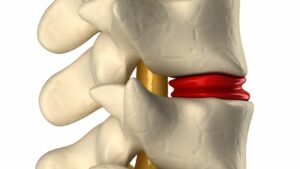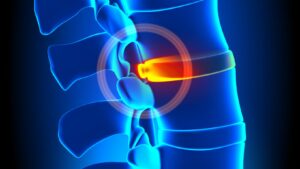In a world where convenience often trumps health, it’s no surprise that our nutritional habits are taking a toll on our bodies. The link between nutrition and physical degeneration is an area that’s gaining significant attention. This article aims to shed light on this vital topic, exploring how our dietary choices can lead to physical decline.
We’ll delve into the science behind nutrition’s role in maintaining our body’s health and how poor nutrition can accelerate physical degeneration. So, whether you’re a health enthusiast or someone looking to make better dietary choices, this article will serve as your guide to understanding the profound impact of nutrition on physical well-being.
Nutrition and Physical Degeneration
 Gaining knowledge about nutrition and physical degeneration involves delving into two interconnected elements – how robust nutrition supports health, and how insufficient nutrition accelerates degeneration.
Gaining knowledge about nutrition and physical degeneration involves delving into two interconnected elements – how robust nutrition supports health, and how insufficient nutrition accelerates degeneration.
Nutrition, a prominent pillar of well-being, directly influences health maintenance. Bodies function optimally, combatting disease and fostering vitality, when given the proper nutrients. Examples of these vital nutrients include vitamins, such as vitamin C for immune support and vitamin D for bone health; minerals like calcium and magnesium for skeletal strength; and omega-3 fatty acids for cardiovascular wellness. Certain proteins, too, play a role in muscle build-up and repair, with examples such as albumin and globulin.
How Poor Nutrition Can Lead to Degeneration
On the flip side, poor nutrition represents a fast-track to physical degeneration. Consuming nutrient-poor foods that are high in empty calories (e.g. sugars, saturated fats, and trans fats found in processed foods) in place of nutrient-rich options, undermines health and propels degenerative processes. For instance, excessive sugar consumption can overwork the pancreas, precipitating insulin resistance and diabetes. Similarly, diets high in saturated and trans fats are known associates of heart disease.
Adding salt to the wound, poor nutrition often comes with increased exposure to harmful additives and low dietary fiber, a combination that disrupts the gut flora balance and lays ground for chronic inflammation. This inflammation, if persistent, catalyzes multiple health problems including degenerative diseases like osteoarthritis, rheumatoid arthritis, and neurodegenerative disorders including Alzheimer’s disease and Parkinson’s disease.
Critical Nutrients for Preventing Degeneration
Vitamins and Minerals Essential for Health
Vitamins and minerals, critical for the maintenance of good health, assist in several bodily functions. For instance, vitamin A boosts immune function, vision, and cellular communication. Various credible sources, like Mayo Clinic, reiterate the importance of vitamin D for bone health and immune function.
Similarly, minerals fulfill numerous roles within the body. Take calcium, it works in conjunction with vitamin D for optimal bone health. Another example is zinc, recognized for its role in the immune system and metabolic function. Owing to their importance for health, a deficiency can lead to physical degeneration.
The Importance of Antioxidants and Amino Acids
 Antioxidants and amino acids play basin roles in health maintenance and disease prevention. Exercise their function as protectors, antioxidants fight free radicals, destructive molecules, that can contribute to tissue damage and aging. The American Institute of Health recognizes Vitamin C and E, selenium, and carotenoids as potent antioxidants.
Antioxidants and amino acids play basin roles in health maintenance and disease prevention. Exercise their function as protectors, antioxidants fight free radicals, destructive molecules, that can contribute to tissue damage and aging. The American Institute of Health recognizes Vitamin C and E, selenium, and carotenoids as potent antioxidants.
Amino acids, on the other hand, dubbed as building blocks of life by the NIH, aid in protein synthesis. Among them, essential amino acids can’t be made by the body and must be obtained through diet. Their role extends to mood regulation, wound healing, and immune function. Insufficiency in these essentials translates into physical degeneration, indicating their crucial role in health and disease prevention.
Need To Know About Nutrition And Physical Degeneration
The connection between nutrition and physical degeneration is undeniable. A diet rich in essential nutrients can be a powerful tool in combating degenerative diseases. On the flip side, poor dietary habits can speed up the degenerative process. The importance of vitamins, minerals, antioxidants, and amino acids can’t be overstated. They’re key players in everything from immune function and bone health to metabolic function and disease prevention. Shortfalls in these nutrients can lead to physical degeneration, highlighting their crucial role in health and well-being. It’s clear that our dietary choices have a profound impact on our overall health. So let’s make them count.

